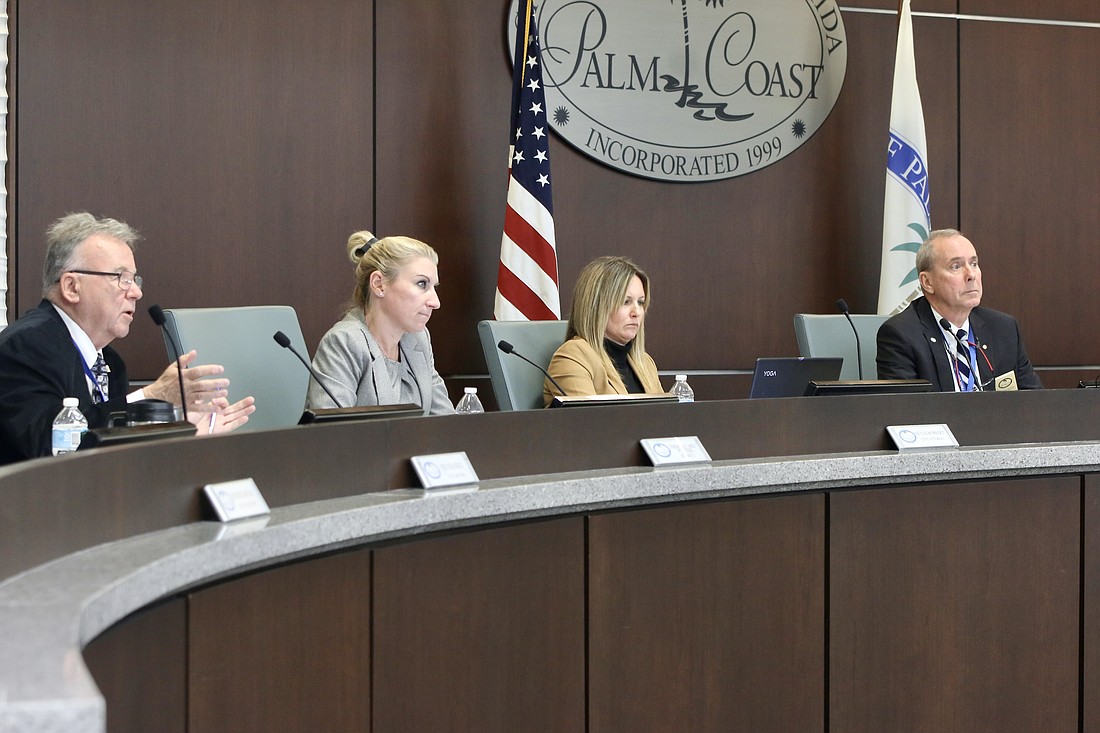- April 5, 2025
Your free article limit has been reached this month.
Subscribe now for unlimited digital access to our award-winning local news.

Palm Coast is looking to update its Land Development application and rental registration fees for the first time in over a decade.
The council decided in 2023 to review its Land Development and Site Permitting and Inspection fee schedules, which were adopted in 2009. The fees have not been updated since, senior planner Phong Nguyen said.
Nguyen said staff is proposing a 43.4% increase to the existing fees — this, he said, matches the changes to Consumer Price Index since 2009. By that percentage, the fee for a technical site plan for a commercial building of 10,000 square feet or less, for example, would increase from the current fee of $400 to $574.
Staff also suggested the addition of several new administrative fees, including charging developers the actual cost of second party surveyor fees and the attorney fees for reviewing plats, land-transaction agreement and deed/easements.
Community Development District creation and modification applications would each cost $15,000 and annexation applications $1,000. Applications for license agreements and right-of-way use agreements would be $75 now and application to build a Development of Regional Impact would now cost $1,150 plus $36 per acre, excluding conservation lands.
Nguyen said the city’s 14-year-old fees places Palm Coast on the lower end of the scale compared to surrounding municipalities. The revenue of the fees for both Land Development and rental properties will go into the general fund, he said.
Mayor David Alfin did ask about how the increase of these fees would impact homebuyers, but Chief of Staff Jason DeLorenzo said that the additional costs of these fees would be spread across a subdivision-worth of houses. The actual impact on individual buyers would be “nominal,” he said.
The Land Development fee increases still would not cover the cost of staff but, Deputy Chief Development Officer Ray Tyner said, that is typical for municipalities because the developments are also an investment in the community.
“There's not one municipality or county in the state of Florida, that I know of that their application fees cover the cost of their planning division or their development fees,” Tyner said.
The annual rental registration fee — which was instituted in 2004 when there were just 800 rental properties and has not updated since — was increased from $5 to $35. Palm Coast has over 8,800 rentals and would bring in around $317,000 from the $35 annual fee, Tyner said. The $5 fee was bringing in approximately $45,000 annually.
In comparison, rentals in unincorporated Flagler County are required to pay the county $400 for an initial application, $200 for renewals, $50 to transfer a rental and $50 to modify an application, according to the council December presentation on updating the registration fee.
Heighter said she felt the $35 was still low and recommended it go up to $50. Instead, in an effort to avoided a potential impact to renters, the council agreed to council member Theresa Carli Pontieri’s suggestion of reviewing the rental registration fee every four to six years.
Your free article limit has been reached this month.
Subscribe now for unlimited digital access to our award-winning local news.